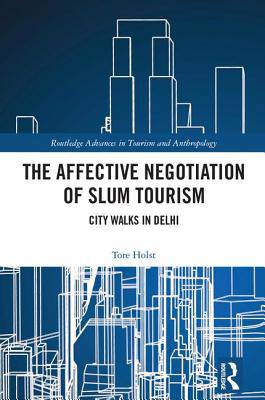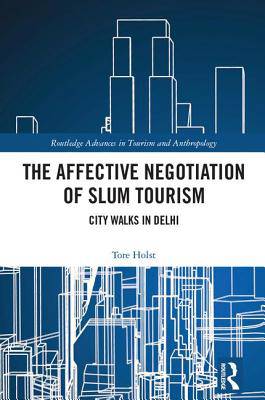
- Afhalen na 1 uur in een winkel met voorraad
- Gratis thuislevering in België vanaf € 30
- Ruim aanbod met 7 miljoen producten
- Afhalen na 1 uur in een winkel met voorraad
- Gratis thuislevering in België vanaf € 30
- Ruim aanbod met 7 miljoen producten
Omschrijving
Each year, approximately a million tourists visit slum areas on guided tours as a part of their holiday to Asia, Africa or Latin America. This book analyses the cultural encounters that take place between slum tourists and former street children, who work as tour guides for a local NGO in Delhi, India.
Slum tours are typically framed as both tourist performances, bought as commodities for a price on the market, and as appeals for aid that tourists encounter within an altruistic discourse of charity. This book enriches the tourism debate by interpreting tourist performances as affective economies, identifying tour guides as emotional labourers and raising questions on the long-term impacts of economically unbalanced encounters with representatives of the Global North, including the researcher.
This book studies the 'feeling rules' governing a slum tour and how they shape interactions. When do guides permit tourists to exoticise the slum and feel a thrilling sense of disgust towards the effects of abject poverty, and when do they instead guide them towards a sense of solidarity with the slum's inhabitants? What happens if the tourists rebel and transgress the boundaries delimiting the space of comfortable affective negotiation constituted by the guides? This book will be essential reading for undergraduates, postgraduates and researchers working within the fields of Human Geography, Slum Tourism Research, Subaltern Studies and Development Studies.
Specificaties
Betrokkenen
- Auteur(s):
- Uitgeverij:
Inhoud
- Aantal bladzijden:
- 194
- Taal:
- Engels
- Reeks:
Eigenschappen
- Productcode (EAN):
- 9781138729896
- Verschijningsdatum:
- 5/02/2018
- Uitvoering:
- Hardcover
- Formaat:
- Genaaid
- Afmetingen:
- 156 mm x 233 mm
- Gewicht:
- 407 g

Alleen bij Standaard Boekhandel
Beoordelingen
We publiceren alleen reviews die voldoen aan de voorwaarden voor reviews. Bekijk onze voorwaarden voor reviews.











